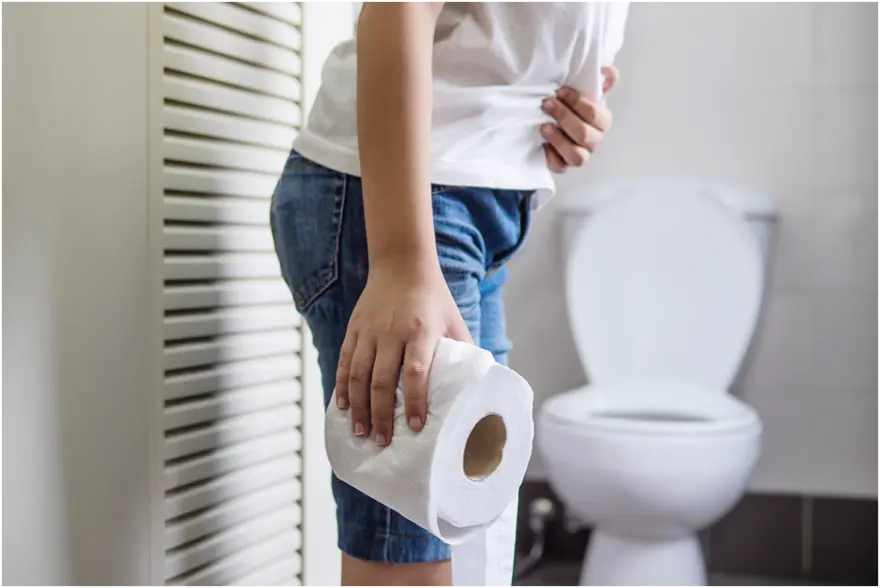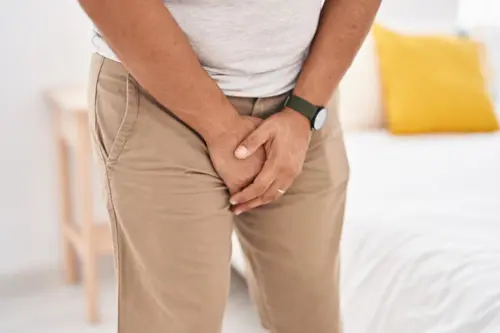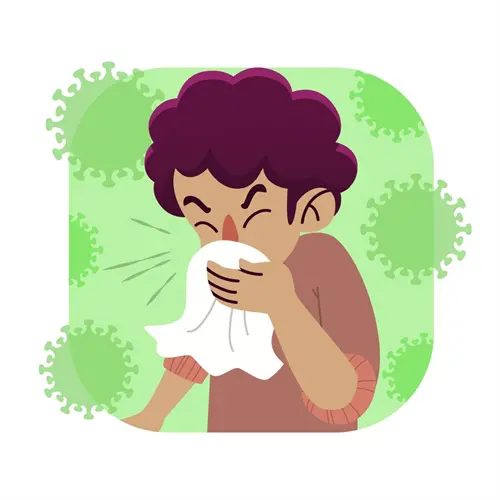Preventive Healthcare
Unveiling Constipation: Symptoms, Causes, and Proven Treatment Strategies
2564 Views
0

What is Constipation?
Constipation is when your bowel movements are less frequent than usual or when your stool hardens and becomes difficult to pass. This might make you uncomfortable. Constipation means that a person has three or fewer bowel movements in a week. There may be a firm, dry stool. It hurts to pass at times. You may get a feeling of not emptying your bowels fully. Nearly everyone has constipation occasionally. It usually lasts only a short time and isn't dangerous.
Irrespective of your bowl pattern, if you hold your stools for a longer duration, it will become difficult for you to pass it. In case of severe constipation, you may find some blood in your stools.
How Common is Constipation?
If you are experiencing constipation, then you are not alone. Around 22% of Indians suffer from this problem, and 12% of the population reports constipation worldwide.
How Does Constipation Happen?
Constipation happens when your colon absorbs too much water from the stools. This makes the stools hard and dry; thus, you may find it difficult to push them out of your body.
Let's know the process in a better manner. Your food usually moves from your digestive tract, and your intestines absorb the food nutrients. This partially digested food (waste) is then passed through the small and large intestines and gets converted into stools. Your colon will absorb water from this waste. In case of constipation, your food will pass too slowly from the digestive tract, thus giving the colon more time to absorb too much water from stools. This makes them dry and hard, resulting in constipation.
What Causes Constipation?
There are several constipation causes, including the following:
- Constipation can result from consuming inadequate amounts of fibre. The portion of plant food that is not broken down is called fibre. It stays in your abdomen. It facilitates regular bowel movements and gives your faeces more volume. Wholemeal bread, bran cereals, fruit, and vegetables are among the foods high in dietary fibre.
- Excessive alcohol consumption might be one of the constipation causes, or it may exacerbate it.
- Certain diets for slimming down are poor in fibre and can make you constipated. For instance, the keto diet is followed by many people to lose weight. In such a diet, you need to reduce carbohydrate consumption, which is a common source of fibre. This can lead to constipation.
- Constipation is an adverse reaction to certain medications, such as iron tablets, some antacids, some antidepressants (like amitriptyline), and painkillers. If you think a medication is causing constipation, inform your physician, who might change your medications.
- Constipation causes may result from several medical disorders, like an underactive thyroid gland, irritable bowel syndrome, colon cancer, diverticular disease, etc.
- Being inactive due to work pressure, obesity, or depression is another reason why you must be constipated.
- Constipation during pregnancy is common. The slowing of bowel movements is caused by the hormonal changes that occur during pregnancy. It might just be the result of the baby taking up a lot of space in the tummy and pushing the bowels to one side in a later pregnancy.
What are the Symptoms of Constipation?
Below are some common constipation symptoms:
- Less than three weekly bowel motions
- Dry, lumpy, or firm stools
- Discomfort or effort during bowel movements
- Rectal bleeding
- Bloody stool
- Lower backache
- Nausea
- Fever
- Unexplained loss of weight
- An abrupt alteration in bowel motions
What are the Risk Factors for Constipation?
The following factors have been linked to an increased risk of constipation: obesity, advancing age, declining consumption of fibre and water, and insufficient physical exercise. If constipation worsens over time, then you should get in touch with the doctor.
Prolonged constipation causes the following health issues:
- Anal fissure, a tiny tear around the anus
- Hemorrhoids, or piles, are swollen, inflamed blood vessels in the anus.
- Straining bowel incontinence
- Fecal impaction, which happens when dried stool stops moving and collects in the rectum and anus, potentially resulting in mechanical obstruction.
Complications can be decreased by taking preventative measures against constipation and by seeking medical assistance when it becomes severe or chronic.
How Long Does Constipation Last?
Constipation may last for several days or weeks, depending on the cause and the individual's treatment plan. Most laxatives start to work after three days. If someone chooses to modify their diet to treat constipation, it could take a few weeks for their symptoms to go away.
What Lab Tests and Other Medical Tests are Required to Find the Cause of My Constipation?
To identify the reason for persistent constipation and to treat it, the following examinations and treatments may be performed:
- Colonoscopy: A colonoscopy is a flexible tube with a camera attached to it. It is used to examine the entire colon and the rectum under mild sedation to see any abnormalities and determine whether there is a stricture or obstruction.
- Anorectal Manometry: The purpose of this process is to assess the function of the anal sphincter muscle, which is necessary for passing faeces. A thin, flexible tube is introduced into the rectum and anus during this surgery. A tiny balloon at the tube's tip becomes inflated. After that, the gadget is drawn back through the sphincter muscle. Through this process, gastroenterologists can assess how well the dynamic activities of muscles like the sphincter, pelvic, and abdominal muscles coordinate with the pressure exerted by the rectum.
- Colonic Transit Study: It's an exam meant to assess colon movement. During this constipation treatment, the patient will be asked to ingest a capsule that has a wireless recording device or a radiopaque marker connected to it. After a few days, an automated record of the capsule's passage through the colon will be visible on X-rays.
- Imaging test: Your doctor may recommend a magnetic resonance imaging (MRI) or computed tomography (CT) scan to determine the exact cause of constipation.
- Other bowel movement tests: Your doctor may suggest some tests to know how your rectum and anus hold the stool. These tests include X-ray and balloon expulsion tests.
How Do You Relieve Constipation?
The most common and fastest constipation relief strategies are making dietary changes and increasing physical activity. Additionally, you can try the following methods:
- To keep the body hydrated, consume 1.5 to 2 quarts of water or other unsweetened liquids per day.
- Restrict your intake of alcohol and caffeinated beverages, as these can dehydrate you.
- Increase your intake of foods high in fibre, such as bran cereal, whole grains, beans, prunes, and fresh fruits and vegetables. You should consume 20 to 35 grams of fibre every day.
- Reduce your intake of low-fiber items, including processed foods, dairy products, meat, and cheese.
- Try to get 150 minutes or more of moderate exercise every week, aiming for at least 30 minutes a day, five times a week. Consider biking, swimming, or walking.
- Don't wait to have a bowel movement if you have the urge. You may find it difficult to pass the stool the longer you wait.
- To get your body accustomed to passing stool, ask your doctor about bowel training every day after breakfast.
- When having a bowel movement, place your feet on a footstool and raise your knees.
- Give yourself plenty of time to use the restroom and try to relax your muscles.
- Take laxatives with caution. To help soften your faeces, a medical expert may give laxatives or enemas for a brief duration. Avoid using laxatives for longer than two weeks without first consulting a medical practitioner. They may cause your body to become dependent on them.
Consult a medical expert before following the remedies suggested above, and avid self-treatments.
Over-the-counter Medications
When trying at-home therapies, a medical expert could suggest an over-the-counter laxative like fibre supplements, lubricants, mineral oil stimulants, stool softeners, and osmotic agents like Milk of Magnesia to relieve constipation.
Prescription Constipation Medicine
If your constipation symptoms persist, a medical practitioner may recommend one or more of the following drugs:
- Lubiprostone, which raises the amount of fluid in the intestines
- Linaclotide or plecanatide, which can help those with chronic constipation
- Prucalopride, which aids in the colon'scolon's ability to transport stool
It's also possible that a medical practitioner will suggest that you avoid taking certain drugs that could make you constipated.
Surgery for Constipation
Surgery can be required to repair damage or irregularities in the colon or rectum tissues or nerves. Usually, surgery is reserved for cases of chronic constipation that have not responded to alternative therapies. Rectal prolapse caused by persistent constipation may require STARR (Stapled Transanal Resection of the Rectum) surgery as a surgical intervention.
How to Prevent Constipation?
You can prevent constipation symptoms and maintain the health of your bowels by doing several different things. Let's know some of the constipation prevention steps.
- Consuming more foods high in fibre can help avoid constipation. However, increasing fibre consumption may be harmful if constipation is a result of Crohn's or colitis.
- Consume insoluble fibre as they do not dissolve and passes through the intestines unabsorbed. Such fibre includes whole-wheat flour, nuts, beans, wheat bran, etc., and helps relieve constipation by giving bowel movements more volume.
- To keep the stools moist, consume plenty of liquids—at least 1.5–2 litres (6–8 glasses) of water-based drinks each day.
- If required, consider taking a fibre supplement to aid constipation relief; however, these should not be taken continuously and only after being prescribed by the physician.
- Increase your physical activity if possible, as this promotes more bowel movement.
How is Constipation Diagnosed?
Along with a physical examination, your healthcare provider will diagnose the underlying condition of constipation by following these steps:
- They will gently press your abdomen to know the pain, irregular lumps, and tenderness.
- Check your anus and surrounding skin.
- Through a gloved finger, your doctor may check the condition of the rectum and muscles of the anus.
The doctor may ask you questions about your medical history, exercise routine, and diet. For some patients, answering such questions may help doctors to suggest a treatment plan. For other people, some additional tests are needed to know the exact cause of constipation. Such tests include:
Laboratory test
You may need to give a blood sample to know the disease which has caused constipation.
Endoscopy
In this process, a small tube containing a camera is inserted into your colon. This will help the healthcare provider to know the condition of your colon and the presence of any irregular tissues.
Imaging Test
Based on your type of constipation (mild or chronic), your doctor may suggest you X-ray imaging. This will let the doctor know the location of your stool in the colon and any blockage in the colon. Imaging tests like MRI or CT scan can let the doctor understand underlying conditions which result in constipation.
Frequently Asked Questions
How do I get rid of constipation fast?
Eating fibre-rich food and drinking adequate liquids may relieve constipation faster.
What makes constipation go away?
You may get rid of constipation symptoms with the help of laxatives. On the other hand, if laxatives do not alleviate the symptoms, you might need to receive constipation treatment for an underlying condition. Bowel movement can also be cured through home remedies, including drinking adequate water and boosting dietary fibre intake. Ensure that you get in touch with the doctor before following any home remedy.
Conclusion
Side effects of medication, insufficient dietary fibre, and other factors can all contribute to constipation. You can be constipated if you are passing firm, dry, and difficult-to-pass stool or if your bowel movements are becoming less frequent. It's critical to discuss your constipation symptoms with a healthcare professional to get a proper line of treatment.
Contact Metropolis if your doctor recommends a stool test or blood test as a part of their constipation diagnosis. We also provide tests from a home facility, where our expert technician will visit your home to collect the samples.























 WhatsApp
WhatsApp